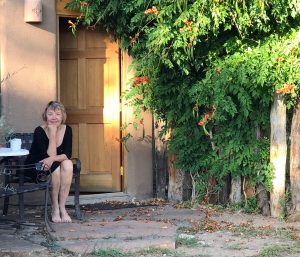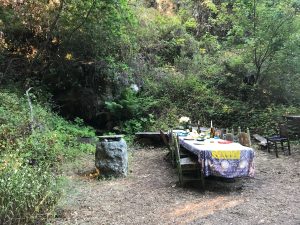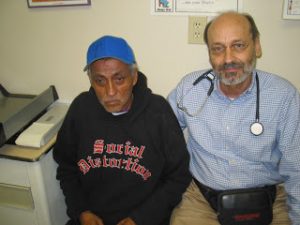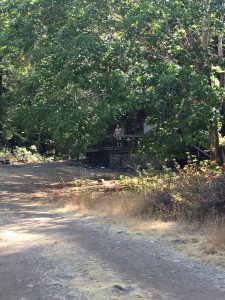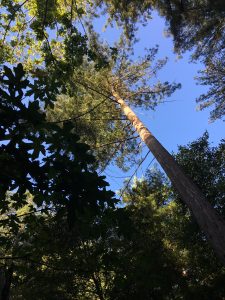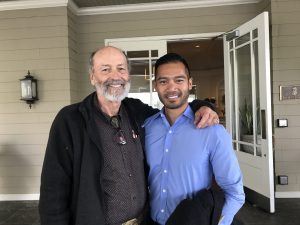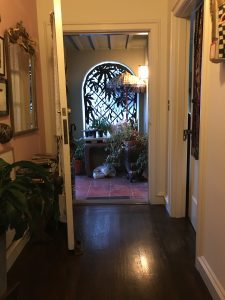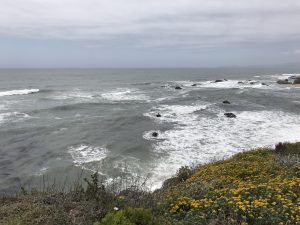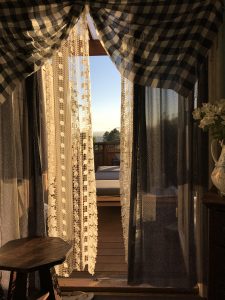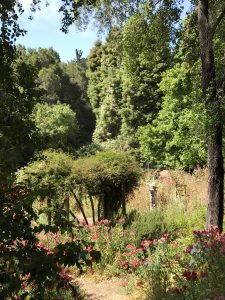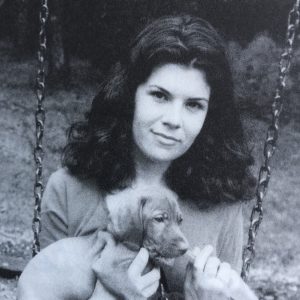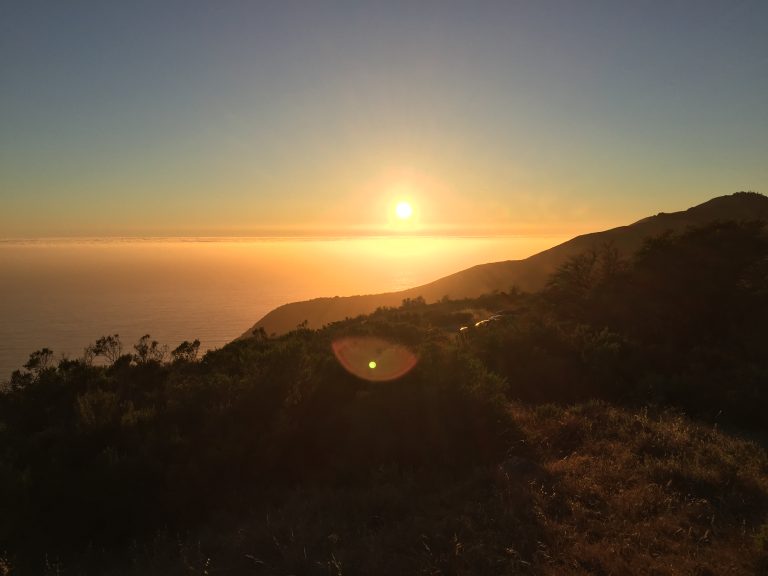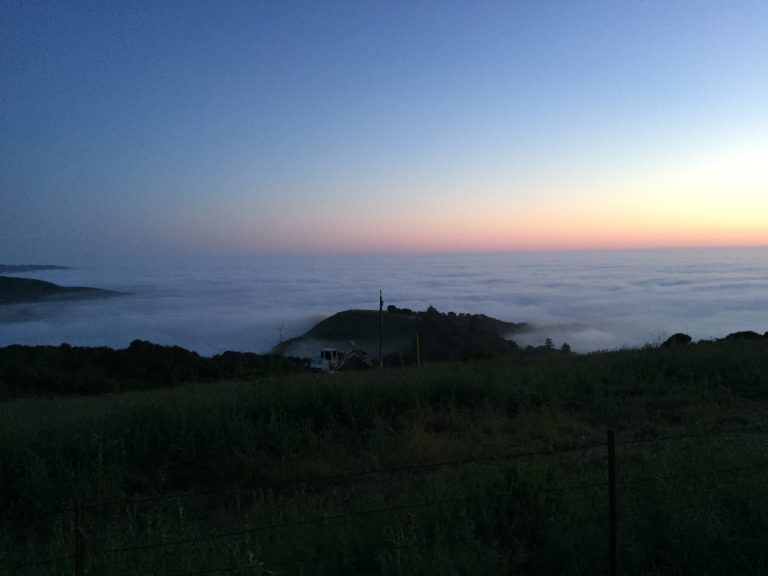It’s a hard road, there are times, hippie dream
It’s a hard road, daddy-o

Big Sur
The final psychosocial crisis of life is ego integrity vs. despair. Integrity is “the acceptance of one’s one and only life cycle as something that had to be” (Erikson, 1950) and also “a sense of coherence and wholeness” (Erikson, 1982).
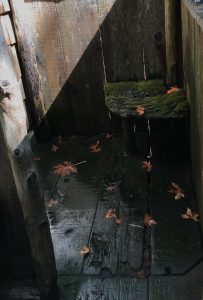
Shower under the redwoods and oaks in Big Sur
This final stage may be considered as a process of integrating (or not) one’s life circumstances, experiences, and decisions. The positive outcome of the process is integrity, acceptance, wisdom, and wholeness. The negative outcome is a sense of despair, meaninglessness, or hopelessness
To the preceding I would add the question of how am I living my life right now? Again and always, this is seen in the context of personal challenges and circumstances. Doing the best we can under the circumstances. And here is the thing: it’s not too late!
It matters how
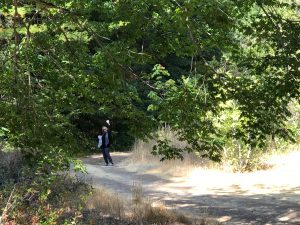
Big Sur
we have lived and how we are living. That’s obvious, but how often have I forgotten the things I always knew?
I’m talking about despair as a life theme or outcome vs. a period or periods of despair.
In the past week three people I knew died and two others are in life-threatening situations. Sadness in their families and among friends, and powerful reminders of the fragility of life and the importance of living well however one might define well.
——————–
Related thoughts: we reach a point in life where the inevitability of personal mortality becomes reality vs. an abstract issue, the deaths and other losses begin to pile up, and this question becomes central to the aging experience: how did I live my life? Was my life meaningful?
How did I do in relation to what might have been, i.e., to what extent did I or did I not waste my life given whatever unique challenges existed for me?
(And remember, there are times when doing nothing is something worth doing.)
Generally, people think of this stage of development related to aging, but it also applies to younger people at the end of life, or really, if you think about it, it also applies to significant loss.
—————-
Psychosocial stages and crises are based on Erik Erikson’s work. The quotes from Erikson are from McLeod, S. A. (2018). Erik Erikson’s stages of psychosocial development. Retrieved from https://www.simplypsychology.org/Erik-Erikson.html
—————-
There are times
There are times I’ve forgotten
And times I’ll never forget.
There are times I’ve known glory,
And times I’ve fallen to the floor in agony.
Times I’ve been kind,
Times when I’ve been cruel.
Times when I’ve stumbled along alone,
And times when I’ve been carried by the love of others.
There are times when I’ve told nothing but the truth,
And times I’ve lied.
Times when I’ve been brave
Times when I’ve been afraid.
Loved.
Hated.
Times for everything under the sun. Mostly love, I think.
—————-
Hippie dream…
Strong dark coffee in the warm bed, making love in the soft morning light.
Peaches, cherries, melon, strawberries and yogurt with toast and almond butter for breakfast. Harvesting chamomile flowers from the garden, the flowers drying along with the peppermint, lemon grass, and colas. Sitting on the deck, birds flying by – some above, some at eye level, and some below. The Bay and golden afternoons. Mystic art happening in the house – “Stories about images collected from journeys both physical and spiritual.” Our home has fragrant gardens in front and in back. It has a vibe like CSN&Y’s Our House. We’re in a city full of gardens like I’ve never seen before – a city of flowers. David was here for lunch yesterday. He worked
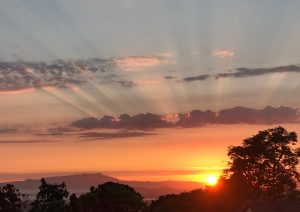
From the deck
for awhile. Good times! Chris sent a box of cherries from her orchard. I baked four cherry galettes and gave one to our new neighbors. Yes – we’re living a hippie dream and it sure feels fine.
